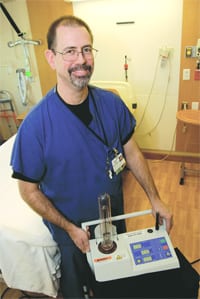Region Struggles with Dearth of Social Services for Children
There is something that Gov. Deval Patrick’s newly minted — and desperately needed — Office of the Child Advocate needs to add to a lengthy to-do list: find out why the children of Western Mass. don’t get the same social service options as children in other parts of the state, and how that can be fixed.
When it comes to care for vulnerable children, the inequities between Eastern and Western Mass. include the availability of psychiatric treatment, group homes, and, especially, alternatives to foster care. The state’s poorest counties are the counties with the highest rates of child abuse and neglect, and they are west of Worcester. But in those same counties, the evidence shows that children are far more likely to be placed in foster care rather than treatment. And the reason seems to be cost, not what is best for the children.
Simply put: it is cheaper for the state to place children in foster homes in a region of the state where the $17-per-day foster care reimbursement goes further for low-income families. So, in Hampden and Franklin counties, families will take in three or four or more foster children and use the daily payment as a secondary or even primary source of household income.
This is not to say that the foster parents are not good — there are incredibly dedicated and gifted foster parents who are increasingly called upon to provide for extremely troubled children. However, in far too many cases, this has led to inappropriate placements where young, vulnerable children, for example, are housed with troubled and sometimes dangerous teens in a home where monitoring is insufficient or sporadic.
How bad has this become? In some foster homes, the state has taken to affixing “alarms” to the bedroom doors of older children known to prey sexually on younger children in hopes of at least alerting foster parents that the troubled child is out of bed and younger children are at risk. There is no stronger sign that a system is overstrained to the point of breaking than knowingly placing dangerous children with vulnerable children. But in underserved Western Mass., there are simply too few choices.
The facts speak for themselves: in Western Mass., more than eight out of 10 children removed by the state from their homes are placed in foster care. In the eastern end of the state, the number is closer to six out of 10. Children who should be receiving a higher level of care than being placed in a foster home are getting it in the communities around Boston. They are being placed in group homes or residential treatment programs with trained staff. They are being seen in a psychiatric setting. They are receiving their education in the place they live rather than being shuttled from home to home and school to school.
The numbers are stark. In the area immediately surrounding Boston, a third of the children — 32{06cf2b9696b159f874511d23dbc893eb1ac83014175ed30550cfff22781411e5} — are in residential care. In Boston itself, a quarter of the children are in residential care. But in Western Mass., only 13{06cf2b9696b159f874511d23dbc893eb1ac83014175ed30550cfff22781411e5} of children are in residential treatment — and that is often in a facility on the other side of the state or in different counties, miles away from whatever family or support system they may have. It is not that these children don’t need the help that such a setting would offer; it is that the facilities do not exist. To be blunt: it is cheaper to stick them in foster care than to provide the kinds of settings that may actually help these kids and are readily available in the eastern part of the state.
All of us struggling daily to help battered and neglected children are thankful that the new Office of the Child Advocate finally gives us a place to turn and be heard. Now we hope that advocate listens to the children of Western Mass.
Jane Lyons is the executive director of Friends of Children, an independent, nonprofit child-advocacy organization dedicated to improving the lives of children in Western Mass. This article first appeared in the Boston Globe.

